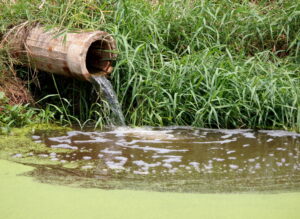
By Chonlawut at Shutterstock
A sewage backup of any scope proves troublesome for homeowners. It causes a great deal of hassle and disruption, as well as an increased risk of contamination and illness. While perhaps not as destructive as a tornado or hurricane, a sewage backup brings its own set of unique problems.
During the cleanup process, your home might be uninhabitable. The risk of illness is too great for your family to remain in the area. Therefore, sewage backups must be dealt with quickly and efficiently. You’ll want to hire a professional restoration company to tackle the mess.
Depending on the severity of the sewage backup, you can take some steps to mitigate damage, salvage possessions, and provide a sense of relief. However, we do not recommend performing sewage cleanup without the assistance of an experienced restoration team. Mitigation is one thing; the full cleanup is another.
After a Sewage Backup
Regardless of how the sewage backup happened, there are some precautionary steps to take immediately. These include:
- Evacuating children, pets, and the elderly from the premises.
- Contacting the utility company to shut off electricity, gas, and water to the home.
- Opening all windows to ventilate the area.
- Removing any dry, uncontaminated items from the house.
- Adding chlorine bleach to any standing water to disinfect and prevent bacteria from spreading.
- Notifying your insurance company of the situation.
- Calling a local restoration company for sewage removal and cleanup services.
Cleaning Sewage Backups
Even if you plan to hire a local restoration company, you’ll want to at least begin mitigating the sewage damage. Cleaning up sewage backup is an unpleasant, difficult task. DIY methods should only be used for minor spills or those confined to a relatively small part of the home.
- Wear personal protection gear (gloves, boots, protective eyewear, and a facemask or respirator). Do not let your skin come in direct contact with wastewater.
- Close any doors to contaminated areas to prevent tracking sewage or debris into an untainted room.
- Shovel dirt or debris into durable plastic bags and dispose of them promptly
- Remove sewage water as soon as possible. Use a water pump or wet vacuum with a filtration device for small backups.
- Remove saturated carpeting, flooring, insulation, wall paneling, and basements. Dispose of them safely and in the appropriate manner.
- Wash the walls, floors, and hard surfaces with hot water and bactericidal disinfectants to prevent contamination.
- Inspect the property for mold; increased moisture levels often lead to mold growth throughout the home.
Again, we only recommend DIY sewage cleanup for minor messes. For more significant damage, don’t hesitate to call a local restoration company offering sewage removal and cleanup services. The results you receive from professionals – who are equipped with advanced restoration equipment – are well worth the cost.
In the event of a severe sewage backup, pick up the phone and call your local Restoration 1. We offer 24-hour sewage removal services nationwide!

